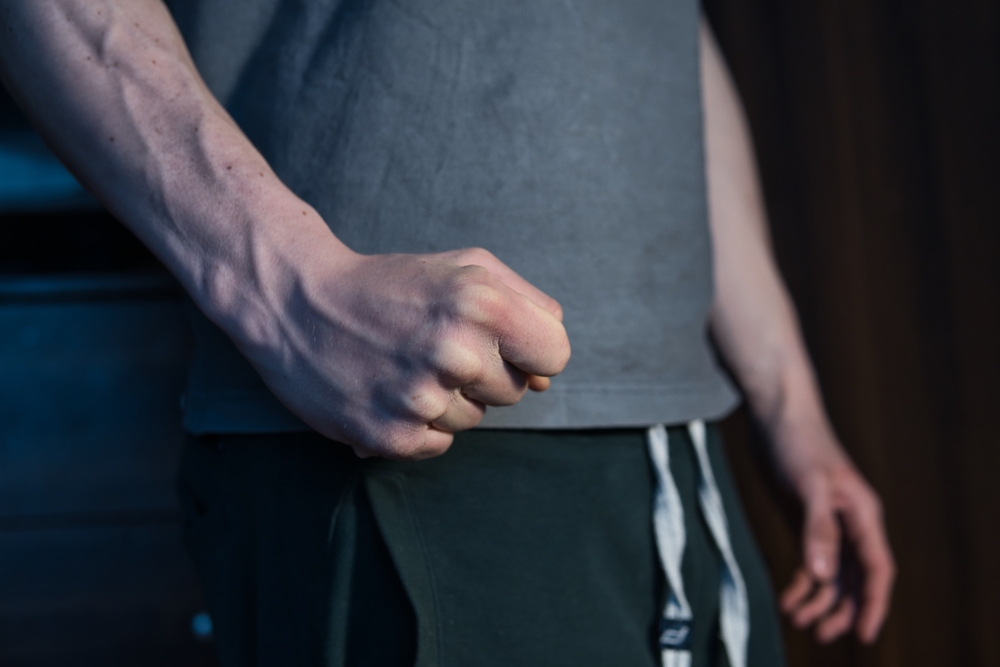Last Updated:
June 10th, 2025
Irritability And Aggression Caused by Addiction
One of the hardest parts of addiction is not recognising yourself anymore. You might wake up after an argument or outburst and wonder who that angry person even was. Irritability and aggression are common symptoms of drug and alcohol addiction and they can sneak in slowly. What begins as out-of-character frustration or snappiness can grow into emotional explosions that leave you and those around you shocked and hurt. If your emotions feel like a ticking time bomb, recognising the role of substance abuse is the first step toward recovery.

What is meant by “irritability and aggression”?
Irritability and aggression are emotional responses that we all experience from time to time. Irritability usually manifests as frustration, restlessness or snapping at things that wouldn’t normally bother us. Aggression is a more intense reaction that often involves shouting at loved ones, lashing out physically or deliberately hurting others.
These emotional reactions can be triggered by stress, tiredness, pain or mental health struggles, but when they become a pattern of behaviour, they can push away everyone important to you. In people living with alcohol and drug addiction, irritability and aggression are very common, as your brain is under constant pressure from the strain of substance abuse or the stress of withdrawal.
This can lead to volatile moods, damaged relationships and a growing sense of isolation, which often propagates further substance abuse. If you or someone you love is becoming more irritable or aggressive than usual, professional rehab treatment can help take a closer look at how substances are driving those feelings.
How can addiction make you more irritable and aggressive?
Addiction can hurt your body in major ways but it can also take a serious toll on your mental health and emotions. Various substances affect the parts of your brain that regulate mood, patience and impulse control and when these effects are compounded by the stress of addiction, irritability, agitation and aggression often rise to the surface.
Alcohol aggression is something many people experience as alcohol numbs your brain’s filters, making you say or do things that are unusually harsh, cruel or even violent. In fact, studies have found that up to 50% of all domestic violence cases occur when the perpetrator has been drinking.
With stimulants like cocaine or methamphetamine, the intense highs can trigger agitation and aggression and the crashing lows bring paranoia and explosive moods. In fact, 56% of meth users believe that the drug has fuelled their violent behaviour, while cocaine-related violent crime is a major issue in both the UK and worldwide.
Even calming substances like benzodiazepines or opioids can trigger restlessness and mood swings when they wear off during withdrawal. Your system becomes so dependent on them that any gap in use triggers stress, discomfort and a short fuse. Over time, this cycle can damage your relationships, isolate you from people who care and increase the risk of relapse.
Recognising these emotional symptoms as part of addiction is an important first step in learning how to manage them
What are the common signs of increased irritability and aggression to look out for?
Irritability and aggression can show up in all sorts of ways and when addiction is involved, they can come on suddenly, feel more intense or happen more often than usual. You might not always recognise the signs at first, especially if someone is normally calm or easy-going, but the shift in their behaviour usually becomes frighteningly clear over time. Here are some of the most common signs to look out for:
What are the dangers of ignoring increased irritability and aggression?
Some people hide their struggles with addiction, but others wear them on their sleeve through anger, mood swings and outbursts. When irritability and aggression keep flaring up, ignoring them is incredibly dangerous.
Unchecked aggression can damage every area of your life and the lives of those around you. It pushes people away, makes honest communication impossible and builds an environment of fear or tension at home. You may lose friends, alienate family members and if things get violent, end up with legal problems, serious injuries or long-term trauma. The shame that follows can be equally devastating, leaving you alone and using more drugs and alcohol to cope with the loneliness and depression.
The longer this continues, the harder it becomes to recognise the person you once were. But with the right support, it’s possible to calm down, understand what’s fuelling the anger and seek forgiveness from the people you’ve hurt, including yourself.

What should I do if I notice these increases in irritability and aggressiveness in myself or a loved one?
Aggression and irritability can be frightening, both to live with and to witness in someone you care about. Addiction Helper has met many people in this situation, and it’s important to understand that emotional and anger issues don’t make you a bad person. They are often symptoms of an internal struggle that’s become too heavy to carry alone. If addiction might be playing a part, getting help could be the most important decision you make. Contact us today and we’ll help you find the right support.
Our compassionate team are ready and available to take your call, and guide you towards lasting the lasting addiction recovery you deserve.
Frequently Asked Questions
(Click here to see works cited)
- Alcohol Change UK. “Alcohol and domestic abuse.” Alcohol Change UK, https://alcoholchange.org.uk/alcohol-facts/fact-sheets/alcohol-and-domestic-abuse. Accessed 13 May 2025.
- Brecht, Mary-Lynn, and Diane Herbeck. “Methamphetamine Use and Violent Behavior: User Perceptions and Predictors.” Journal of drug issues vol. 43,4 (2013): 468-482. doi:10.1177/0022042613491098

